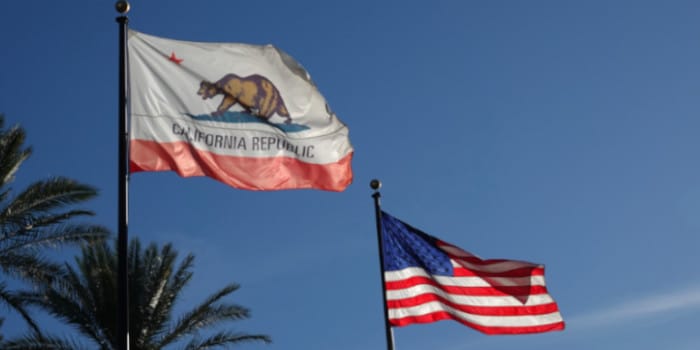
California Government Takes Legal Action to Stop Koi Nation’s Casino Project in Sonoma County
The State of California and Governor Gavin Newsom have initiated a federal lawsuit to halt the development of the Koi Nation’s proposed casino and resort in Sonoma County. This move represents a significant escalation in the ongoing dispute over tribal gaming rights within the state.
Legal Battle Over Land Trust for Casino
The lawsuit was filed in the US District Court for the Northern District of California, challenging the decision of the US Department of the Interior to grant federal trust status to 68.6 acres of land near Windsor. This approval paved the way for the establishment of the Shiloh Resort & Casino.
California officials argue that the federal government overlooked crucial legal safeguards and disregarded state authority by permitting the project under a contested section of federal law. This section, known as the “restored lands” exception in the Indian Gaming Regulatory Act, allows tribes to operate casinos on purchased land if it is connected to federal recognition. However, California contends that the Koi Nation’s ties to the Windsor area are too tenuous to meet the requirements of this exception.
In their legal complaint, state representatives assert that the historical origins of the Koi Nation are rooted in Clear Lake, located 30 miles away from the proposed Shiloh site. They maintain that the evidence used to establish a historical link to Windsor, such as references to trade routes and sporadic ancestral activity, does not align with federal law standards, which demand a clear and continuous tribal presence.
Allegations of Neglected Review Process
The lawsuit further alleges that the Department of the Interior failed to adhere to the necessary “two-part determination” process, which typically involves consultation with local authorities and the governor to ensure that a tribal casino does not negatively impact the surrounding community. California contends that without the governor’s approval, the land should not be eligible for gaming activities under federal regulations.
Attorney General Rob Bonta criticized the Interior Department’s approach, accusing them of circumventing the established rule by pursuing an alternative legal route. This bypass, he argued, sidestepped intergovernmental discussions and disregarded local land use regulations that would prohibit the operation of a casino in the area.
Growing Opposition and Legal Challenges
The legal action follows similar moves by neighboring tribes, such as the Federated Indians of Graton Rancheria, who have expressed strong objections to the Koi Nation’s casino plans. Local community groups and residents share this sentiment, expressing concerns about the potential threat posed to the rural environment, public safety, and natural surroundings of the Shiloh area.
California aims to overturn the federal approval and halt the $600 million development project, which includes a 400-room hotel and a 530,000-square-foot gaming floor. As legal battles continue to unfold, opposition from local stakeholders intensifies, setting the stage for a protracted dispute over the future of the contentious casino venture.
ความขัดแย้งกฎหมายเกี่ยวกับที่ดินในการก่อสร้างคาสิโน
การฟ้องร้องนี้ได้ถูกยื่นในศาลฟีเดอรัลของสหรัฐสำหรับเขตทิศเหนือของแคลิฟอร์เนีย โดยประท้วงโดยรัฐแคลิฟอร์เนียต่อการตัดสินใจของกรมดินแดนของสหรัฐที่ให้สถานะเชื่อมั่นทางรัฐบาลสหรัฐกับที่ดิน 68.6 เอเคอร์ในพื้นที่ใกล้เมืองวินด์เซอร์ การอนุมัตินี้เป็นทางเลือกสำหรับการสร้าง Shiloh Resort & Casino
การเรียกร้องของรัฐแคลิฟอร์เนียคือการที่รัฐบาลสหรัฐมองข้ามมาตรการกฏหมายที่สำคัญและละเมิดอำนาจของรัฐโดยอนุญาตโครงการภายใต้ส่วนที่โต้แย้งของกฎหมายแห่งผู้เล่นการพนันแห่งชาติ จากฟิลต์ ที่ให้สิทธิให้กับพื้นที่ที่ซื้อถือสิทธิในการดำเนินงานคาสิโนที่มีการเชื่อมั่นทางรัฐบาลสหรัฐ อย่างไรก็ตาม แคลิฟอร์เนียยืนยันว่าความสัมพันธ์ของชาติ Koi กับพื้นที่วินด์เซอร์ไม่มีพื้นฐานเพียงพอตามเงื่อนไขของข้อยกเว้น “ที่ดินที่เรืยมกลับมา” ในกฎหมายบัญฑิโนไอนเดียนการกีดกันระดับรัฐสหรัฐ
ข้อกล่าวหาเรื่องการตรวจสอบที่ถูกละเมิด
การฟ้องร้องยังกล่าวถึงว่ากรมดินแดนของสหรัฐละเมิดการปฏิบัติตามกระบวนการ “การกำหนดสองส่วน” ที่จำเป็นซึ่งมักจะเกี่ยวข้องกับการปรึกษาผู้มีอำนาจในพื้นที่และผู้ว่าการรัฐเพื่อให้แน่ใจว่าการก่อสร้างคาสิโนชาติไม่มีผลกระทบที่เลวร้ายต่อชุมชนรอบๆ รัฐแคลิฟอร์เนียยืนยันว่าโดยไม่มีการอนุมัติจากผู้ว่าการ ที่ดินไม่ควรมีสิทธิในการดำเนินกิจกรรมการเล่นการพนันภายใต้กฎหมายแห่งรัฐบาลสหรัฐ
ทนายอาสา Rob Bonta วิจารณ์ว่าวัสดุในกรมดินแดนได้ข้ามความเป็นไปตามกฎเด็ดดวงที่สร้างขึ้น โดยว่าดื่มการพิจารณาระหว่างรัฐและประเทศ และเพิกเฉยต่อกฎหมายข้อบังคับในการใช้ที่ดินท้องถิ่นที่จะห้ามการดำเนินกิจกรรมคาสิโนในพื้นที่นั้น
การต่อต้านที่เพิ่มขึ้นและความท้าทายกฎหมาย
การดำเนินการกฎหมายนี้เกิดขึ้นหลังจากการกระทำเดียวกันของเผ่าพี่น้องโดยรอบข้าง เช่น พี่น้องชาติชาติเดียร์แรตเต็ดอินเดียนส์ ออฟ เกรทั่น เรนเชเรีย ซึ่งได้แสดงความขัดแย้งอย่างแรงกับแผนกาสิโนของเผ่า Koi หมู่ชุมชนท้องถิ่นและผู้อาศัยในพื้นที่ร่วมคิดเห็นนี้มีความกังวลเกี่ยวกับความเสี่ยงที่อาจเกิดต่อสิ่งแวดล้อมในชนบท ความปลอดภัยสาธารณะ และสิ่งแวดล้อมธรรมชาติในพื้นที่ชิโล่
แคลิฟอร์เนียมีเป้าหมายที่จะทำให้การอนุมัติของรัฐบาลสหรัฐล้มเหลว และหยุดโครงการพัฒนามูลค่า 600 ล้านเหรียญนี้ซึ่งรวมถึงโรงแรม 400 ห้องพักและพื้นที่เล่นเกมขนาด 530,000 ตารางเมตร ซึ่งมีการก่อให้เกิดการต่อสู้ทางกฎหมายอย่างต่อเนื่อง การต่อต้านจากผู้เกี่ยวข้องในพื้นที่นั้นเพิ่มความชัดเจนเข้าไป สร้างหลักฐานเพิ่มเติมในการต่อสู้เกี่ยวกับอนาคตของโครงการคาสิโนที่ขัดแย้ง















